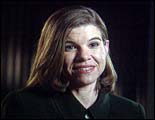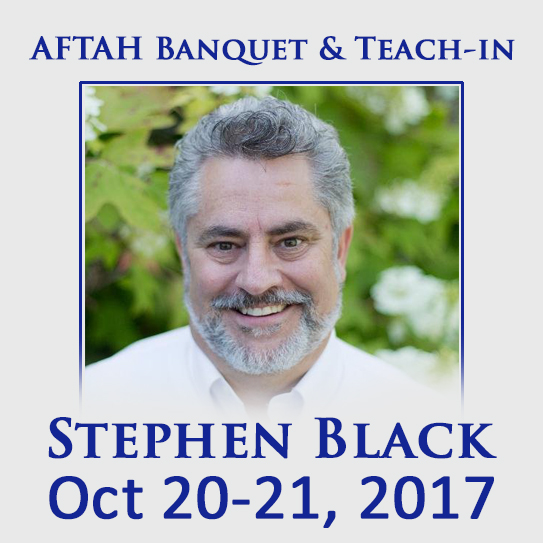
| Home | About | Issues | Resources | Join Our Email List | Savage Hate | Donate | Contact |
Ex-Lesbian Yvette Schneider Testifies to ‘Complete’ and Permanent Change
 EDITOR’S NOTE: Yvette Schneider’s comments below relate to her own story of transformative change and were initially made following a controversy last year surrounding Exodus President Alan Chamber’s quotes in the Los Angeles Times. Since we first published this piece, we have learned that Alan’s statements were incomplete and taken out of context by self-serving homosexual activists to create an impression that he never sought to create — i.e., questioning the potential for radical and even complete change in the life of homosexual strugglers.
EDITOR’S NOTE: Yvette Schneider’s comments below relate to her own story of transformative change and were initially made following a controversy last year surrounding Exodus President Alan Chamber’s quotes in the Los Angeles Times. Since we first published this piece, we have learned that Alan’s statements were incomplete and taken out of context by self-serving homosexual activists to create an impression that he never sought to create — i.e., questioning the potential for radical and even complete change in the life of homosexual strugglers.
Since the Times interview, Mr. Chambers has clarified his position on change in homosexuality to AFTAH saying:
“There are a variety of levels at which individuals experience change when it comes to the issue of homosexuality. For some it may be a rapid, total transformation, but for many, it is often a gradual process of dealing with difficult life issues, habits and behaviors. Regardless of the timing, any change is still change and as Christians, we know that the process of dealing with sin and becoming more like Christ will continue throughout the course of our lives.”
______________________________
Original Americans For Truth article, June 22, 2007:
Ex-Lesbian Yvette Schneider Testifies to ‘Complete’ and Permanent Change
The following is offered by former lesbian Yvette Schneider in response to Exodus International President (and former homosexual) Alan Chambers’ comment in the Los Angeles Times, “By no means would we ever say change can be sudden or complete.” Schneider, now a mom in St. Louis, was once a featured speaker on Focus on the Family’s “Love Won Out” tour highlighting the possiblity of change for homosexuals. Yvette can be reached at livinginvictory@hotmail.com. Emphasis is hers:
I came out of homosexuality after a powerful encounter with Jesus Christ and a desire to serve and obey Him. I can say with complete honesty that I NEVER have homosexual desires of any sort – physical or emotional.
Editor’s Note: Although we criticized Alan for his remark to the Times — and who would doubt the pressure he faces from a liberal media seeking to discredit the idea of healthy change for homosexuals — we know that he and Exodus International, like all Christians, celebrate God’s healing work in her life.
___________________________
The following Christian tract gives a short summary of Yvette’s path out of homosexuality:
Yvette: a Journey from Darkness into Light
By Annetta Small
“I saw myself on my hands and
knees eating stale crumbs off
a dirty floor because I could not stand
up and see the feast that God had for
me. God, please help me to stand up
and leave these crumbs alone and enter
into what you have for me,” I prayed
one day after a six-year involvement
in the lesbian lifestyle.”
—Yvette Cantu Schneider
“Are you and your girlfriend having a
homosexual relationship?” Yvette’s mother
asked her one day, suspicious of the relationship
she saw between Yvette and her closest
friend. Angered and devastated, Yvette, then
17, locked herself in the bathroom and cried.
Although the thought of such a relationship
repulsed her, deep in her heart she wished that
it were true. “Everything I need is in this
relationship,” she thought miserably.
In college, professors who ridiculed the
Christian faith influenced Yvette, and she
became hostile towards Christians, without
really listening to them. However, in spite of
being popular and getting top grades, her life
seemed empty and meaningless. Struggling
with physical and emotional symptoms, she
visited therapists, healers, and clairvoyants,
but nothing could alleviate the gnawing
emptiness in her life.
While working at a hotel in Laguna Beach,
California, Yvette came into contact with the
homosexual community for the first time.
Among many close male homosexual friends,
a special bond developed with Ed from Argentina.
“You’ve got an implicit homosexual
relationship,” Ed would always say about
Yvette’s new best girlfriend. And she would
say, “Look, just because you’re gay doesn’t
mean that everyone’s gay and that you can’t
have a good friendship.” But she realized that
she did not connect with the guys she dated
like she did with this friend.
Increasingly dissatisfied with her life, Yvette
soon decided she needed a change. Accepted
at the University of Delhi in India, she went
into the Himalayas to learn Hindi. And in the
process, she became close friends with her
teacher who was four years older. Several
months later, at the teacher’s initiation, the
relationship became physical.
Consumed with inner turmoil and stunned at
what she had done, Yvette walked the paths of
the Himalayas trying to reconcile the conflict
between her feelings and her actions. “This
can’t possibly be who I am,” she thought, but
she finally decided that the reason for her guilt
was that society had taught her that lesbian
behavior was wrong.
Upon her return to the States, Yvette told Ed
she was a lesbian. His response shocked her.
“There’s no hope for me,” he said. “I’m lost
already, but, believe me, you do not want to
get involved in that lifestyle.” Ignoring what
she felt was hypocritical advice, Yvette began
visiting lesbian bars. Angry at society and its
morality, she became involved in homosexual
activism and joined the “Gay & Lesbian
Alliance Against Defamation” [a pro-homosexual
media organization]. She finally felt
good because she had an outlet for her pent-up
rage.
One night at a lesbian bar in southern California,
Yvette encountered Christians passing out
fliers. “Don’t you have anything better to do
on a Saturday night than to come here and
harass us?” she protested. One man replied
that God loved her and asked her not to be
offended. That small act of kindness did not
keep her from going into the bar, but it did
begin to change her perception of Christians
and her stereotypes of them.
After another relationship with a woman
ended, Yvette moved out to care for Ed and a
friend who now had AIDS. When they felt
well, they attended an endless stream of
parties. But afterwards, she thought, “My life
is so empty and meaningless…there has to be
more than this.”
At the law firm where she worked, Yvette met
Jeff, an outspoken Christian who impressed
her with his knowledge of Scripture. Jeff could
back up everything he believed about how to
live daily life with the Bible. Yvette realized
that after studying Eastern and Native American
mysticism, she still could not give one
practical answer to life’s great questions, nor
had she found fulfillment. Finally, she told
God, “I’ve tried to find You for years. For my
whole life I’ve been reading this book and that
book, and I feel like I’m further away from
You than ever.”
Reluctantly, she began asking Jeff questions
about the Bible, even while figuring there was
no way she could ever be a Christian. “I’m a
lesbian,” she thought. Finally, Yvette got up
the courage to attend a church. She had never
been in a Christian church before. Commenting
on her first visit, she states, “I could feel
the presence of the Lord there, but I didn’t
really know why Jesus died for mankind.
I wanted to go up to the front and ask the
pastor to pray for me, but I didn’t know what
an altar call was.”
Afterwards, when a woman explained the
Gospel and repentance to her, Yvette said,
“Look, I believe homosexuality is okay; I
believe abortion is okay. I’m so different from
what Christians believe. There’s no possible
way that I could do that.” But the woman
replied, “It doesn’t matter if you believe those
things are okay. If you read God’s Word with
an open heart, the Holy Spirit will change you.
You don’t have to change yourself.”
So Yvette told God, “My life has been terrible.
I’ve done terrible things with it, and now You
can have it. You’re in control.” And a tremendous
relief swept through her, like she had
come home from a long journey. She felt like
God had opened His arms and said, “Come to
Me and be My daughter.” And she replied,
“Thank you so much for letting me in.”
Her friend Ed also gave his life to the Lord and
a year later died of complications from AIDS.
About six months before he died, he shared
with her these poignant words, “I appreciate
God’s mercy so much, and I appreciate His
grace, and soon I’m going to get to see Jesus
face to face.”
Epilogue: Yvette Cantu Schneider has been
out of the lesbian lifestyle since 1992. She
married Paul Schneider in December 1999.
They have two daughters, Jessica and Erica.
They minister in the St. Louis, Missouri, area
to those desiring to overcome homosexuality.
________________________
You, too, can turn from the darkness to the Light
of Jesus Christ. If you desire to have your sins
forgiven and a home in heaven, you must realize
that:
You have a need
For all have sinned, and come
short of the glory of God
—Romans 3:23
There is a penalty for sin
For the wages of sin is death; but the gift
of God is eternal life through
Jesus Christ our Lord.
—Romans 6:23
God has the answer
But God commendeth his love toward us,
in that, while we were yet sinners,
Christ died for us.
—Romans 5:8
You must turn from your sin
Repent ye therefore, and be converted,
that your sins may be blotted out.
—Acts 3:19
You must trust Christ alone to save you
Believe on the Lord Jesus Christ,
and thou shalt be saved.
Acts 16:31
Why not do it today?
If thou shalt confess with thy mouth
the Lord Jesus, and shalt believe in thine
heart that God hath raised him from
the dead, thou shalt be saved.
—Romans 10:9
For more information:
To reach Yvette Cantu Schneider, write:
To reach the author, Annetta Small:
asmall2@verizon.net
(360)398-1227










